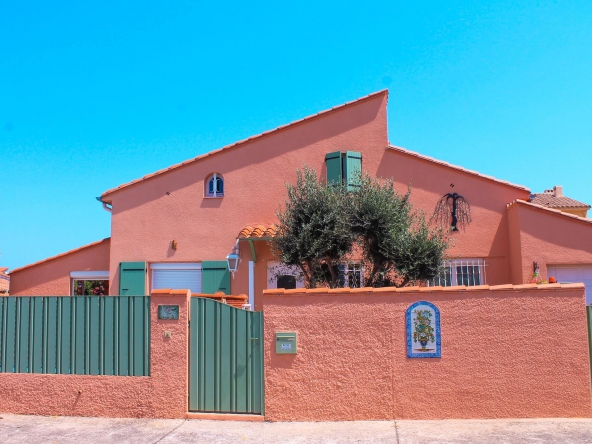2020 has definitely been a momentous year, with a global pandemic, effecting economies around the world, UK Leaving the European Union and Donald Trump failing to secure a second term as US president.
The well-known property tycoon of Trump Towers fame, may have seen a dip in his commercial real estate fortunes too, but others with a more diverse property portfolio have continued to see growth, despite the huge effects of the pandemic.
So which property classes have fared better and which have not, and what does the future hold for investors eagerly awaiting a return to normality, post vaccine roll-out?
Well, we definitely know which sectors have fared the worst over the last year. The hospitality and tourism industries were undoubtedly some of the hardest hit during lockdown as planes remained in hangars and borders closed. Hotels, B&B’s, resorts, nightclubs and every other type of land or property related to tourism suffered. A slow recovery is tantalizingly close, but research puts a return to 2019 levels as far away as 2024.
That time span, means that there may well be a lot of commercial hospitality property which becomes available in the next few years, as many businesses will not be able to survive. Look out for the property auction opportunities in this sector. Savvy real estate investors with an eye for a bargain will indeed be snapping up prime commercial hospitality real estate at auction, with plans for redevelopment.
One sector of the economy that has benefited from lockdown is online retail outlets and this has also been good news for the manufacturers that supply them. An interesting twist to this is that some malls, which are struggling to survive, could be turned into distribution centres for e-tailers.
All types of commercial warehousing including storage units have also seen an increase in demand, and that trend will continue as more and more businesses focus on their e-strategies.
The Brexit effect has also seen an increase in European based brands deciding to open UK based distribution centres in order to by-pass the huge delivery times that Brexit has caused.
Traditional retail (without an online presence) has fared badly and the decline in high street retail that started as e-tailing grew, has been accelerated during the COVID crisis. Consumer behaviour has been changed, and this may be an irreversible trend. So, if you are looking at a retail property investment make sure it has a strong supermarket or pharmacy as an anchor tenant along with two to three other good, solid tenants that will bring footfall to the shopping area, which in turn will attract other good tenants.
In the residential property sector, the changes to our daily lives due to the pandemic resulted in a demand for rental properties with space for multifamily occupancy and space for home working. Properties with outdoor areas and those located in greener areas were more in demand. With many employers pledging that homeworking will be the norm for many of their staff, the demand for properties away from traditional working centres and city hubs with longer commute times will increase.
For those employees who are now telecommuters or work-at-home employees, the possibilities of working from a global location is now a reality being capitalized by many countries with special work visas allowing residency in a foreign country, and all its benefits like schooling, medical, driving licence and property ownership.
The Caribbean island of Barbados made headlines recently and helped popularize the new remote working model when it announced the “Barbados Welcome Stamp,” which allows people to stay in the country and work for up to a year. The favourable climate, laid back lifestyle and reduced cost of living is attracting many to purchase or rent international properties.
The Baltic state of Estonia in Europe has been running an e-residency program to attract entrepreneurs since 2014 with around 70,000 so far taking up the opportunity. Starting August 1, 2020, Estonia sweetened the deal by launching a new digital nomad visa that will allow foreigners to live in the country for a year. Estonia is likely to see good increases in property ownership from foreigners and opportunities for buy-to-let investments.
This has in turn fuelled a property market of residency by investment. Other countries will no doubt join a growing list of countries aiming to encourage economic migrants with special visas and property purchasing deals. Those countries will be prime property hotspots and smart investors looking for an international property investment should closely follow the list of countries promoting these new working visas. The United Arab Emirates, Thailand, Canada, United Kingdom, Singapore and the United States are all ranked high in the list of countries for home workers.
The international holiday homes market will also increase over the coming years as traditional holidaymakers, conscious of the health benefits of social distancing and space, choose self-catering over more crowded resorts and hotels. Conversely, staycations, where holidaymakers are encouraged to rent locally will be a trend beyond 2021. The global disparities in vaccine roll-out and the threats of new variants from neighbouring countries will encourage holiday renters to stay local.
Social distancing rules and focus on space has been critical during the pandemic and this change has encouraged growth in the student housing market. The need to ensure campus-based housing is not crowded, has lead to a demand for traditional student lets located with a 1-5 km of the university.
Another growth area where there is expected to be a significant demand, is housing for senior citizens. As the Baby Boomers enter their 80’s, demand will then increase each year for sheltered accommodation and care home facilities.
Undoubtedly there is a lot to consider over the coming years from an investors perspective and some countries will emerge from the pandemic with more buoyant property markets.





